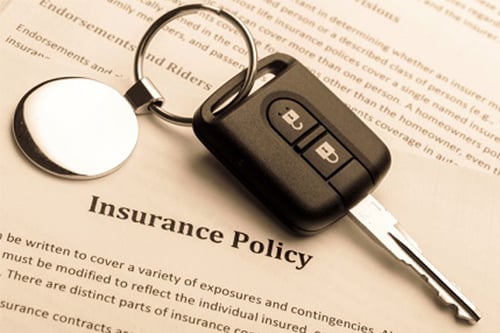

The coronavirus pandemic and associated lockdowns have impacted the number of drivers on the roads. Shutdowns and the resulting slowdown in economic activity resulted in a year-over-year drop of 40.2% in miles driven by US drivers in April 2020 and 25.5% in May 2020, according to the Federal Highway Administration. Additionally, noted the Deloitte Center for Financial Services in a recent report, ongoing health concerns combined with a greater acceptance of remote work and long-term drops in economic activity could result in reduced vehicle usage for the foreseeable future, despite the fact that driving trends have started to normalize.
In this changing environment, auto insurers are being challenged to meet their customers’ evolving needs, with many already offering refunds for auto insurance due to lower rates of driving, but that’s not all that will be needed to maintain customer loyalty in this new normal. A panel discussion during the Connected Claims USA virtual event addressed how insurance companies can put their customers’ interests first and ensure that their brands are trusted by consumers over the long-term.
While the pandemic caused driving to drop, many predict a surge in claims is around the corner as people choose driving their personal vehicles over taking public transportation to avoid potential exposure to the coronavirus. This in turn will test auto insurance carriers.
“That’s something that we planned ahead for,” explained Shannon Harjer, VP of personal lines claims at Founders Insurance Company. “We had planned on the utilization of new technology and segmentation of our claims so that we can get to those claims quicker and at the right skill level ... I think a lot of those in the industry who had capitalized on the technology that is out there will fare very well through this increase.”
Repair shops have also seen a rise in activity, indicating that the predictions about claims are already coming to fruition. Speaking on the Connected Claims panel, David Smith, SVP of supply chain and procurement at Caliber Collision, noted that there has “definitely” been an influx of business that seems like pent-up demand being let loose. People who may have been uncertain about whether they would be furloughed and held off on getting their car fixed after an accident are just now coming into repair shops. Even these companies have had to adjust their customer services due to the coronavirus.
“It’s a different sort of experience,” continued Smith. “When you normally repair your car, there’s a lot of interaction with a service advisor – you’re out walking around the car, you’re spending time with them – so we have accelerated a lot of our touchless procedures to allow those consumers to feel safe when they’re dropping off the car [or] transitioning to the rental without having to do a lot of interaction with folks.”
Read more: How COVID-19 has changed our driving habits
It’s evident then that many parts of the auto insurance supply chain are being transformed due to the fallout from the pandemic. On the claims side, carriers have had to prepare for the incoming increase in auto claims to maintain consumers’ confidence in their ability to respond effectively in times of loss. Some experts are, however, not convinced there’s going to be a flood of claims. David Bano, the former chief claims officer for Nationwide, says that he believes the number of people driving on the roads could be offset by those who will now be working from home for the time being, if not permanently.
“People are going to want to hit the road and the security of being in your own car is going to be valuable, but I’m not 100% sure that I’m going to see that kind of frequency over the top of the normal curve,” he explained, noting that, nonetheless, planning ahead and being prepared with technology will be important.
In the meantime, Harjer sees three actions that carriers – and other segments of the industry working in auto insurance – can take now to improve their customers’ feelings of loyalty. The first is to build the most robust disaster preparedness plans possible, whether they’re for pandemics, hurricanes, or cyberattacks.
“We need those plans and they need to be thorough, they need to be planned well ahead, and everybody needs to know their part because we did see companies that had some gaps,” she said. “That brings a lot of trust to your organization when people know they can count on you, not just from the employee side, but also the customer side.”
Another key step is revisiting auto insurance customers’ needs, and playing the long game as well as the short game. This means figuring out how the business is saving for the future, keeping in mind that claims frequency was down for a few months, but also acknowledging that claims from the previous year and pre-COVID still have to be dealt with as well as those claims coming down the pike.
“The last piece is to have the organizational intelligence,” continued Harjer. “This is the time we train up, this is the time we identify the talent and make sure we’re ready for the future because where our customers’ needs have shifted, people do expect better service through the technology that we have and they also expect better customer experiences – and that all starts with our employees. That is one thing that I strongly believe in, is when your employees feel confident and have that trust and loyalty in your company, it transfers to your customers.”
